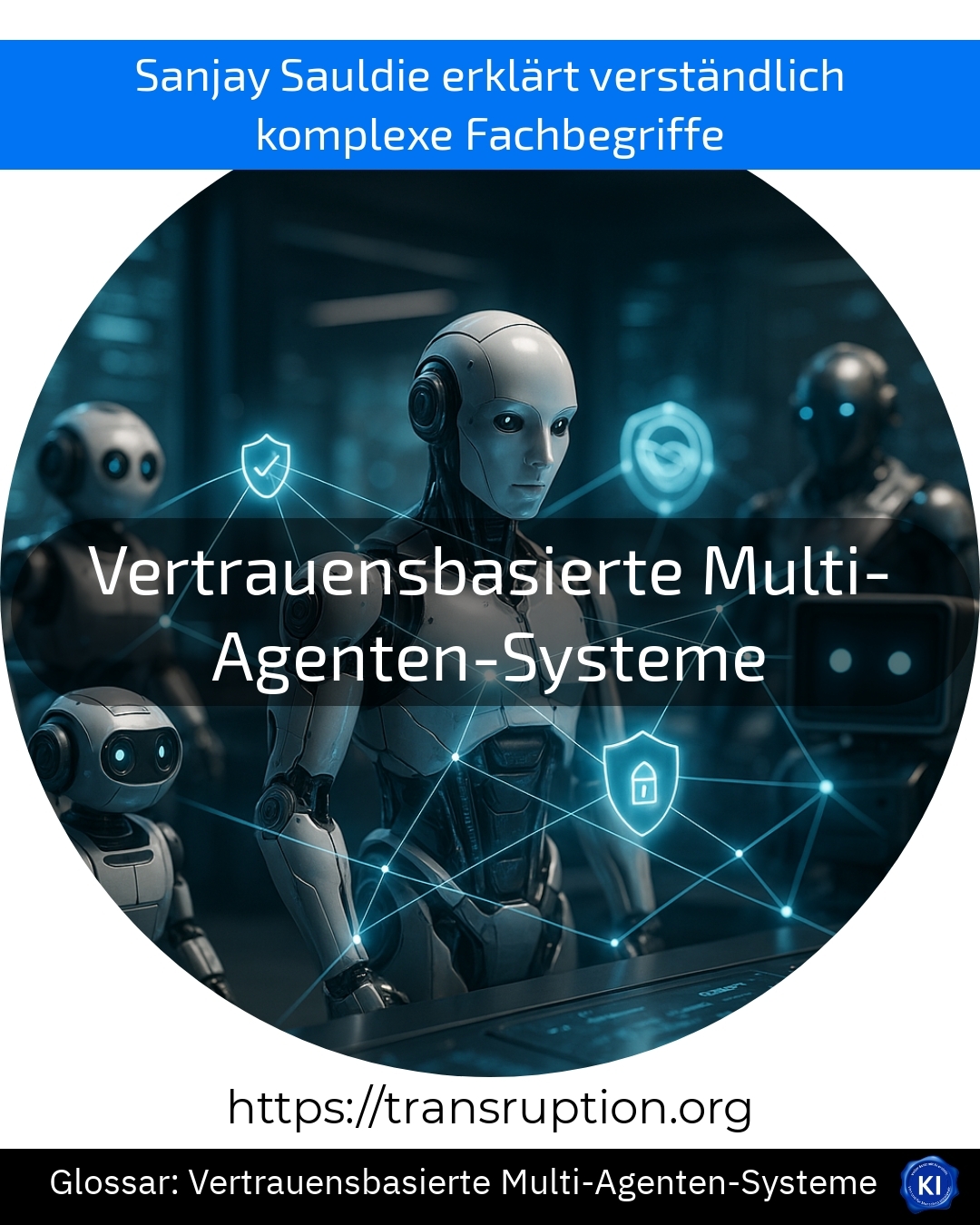Trust-based multi-agent systems are particularly relevant in the fields of artificial intelligence, automation, industry and Factory 4.0.
These are digital networks in which several independent computer programmes (so-called "agents") work together. The special feature: These agents make their own decisions and coordinate with each other - they act in a similar way to a team of people. The difference to traditional systems is that trust between the agents plays a central role. Each agent assesses how reliable and honest the others are before sharing data or solving tasks together.
An illustrative example: In a modern factory, autonomous robots and machines can coordinate their work automatically. If one robot notices an error in another, it must decide whether this robot is trustworthy or whether it would rather ask another machine for help. This trust in the system makes collaboration more efficient and safer.
Trust-based multi-agent systems therefore ensure that decisions can be made quickly and reliably - which is particularly beneficial in efficient production and the use of artificial intelligence.















